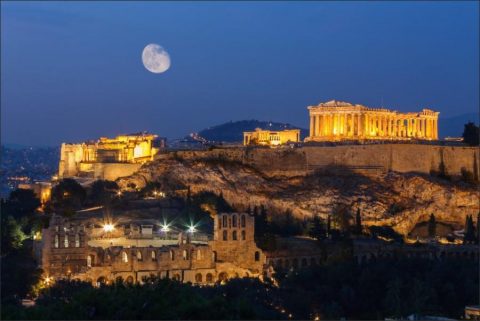In Greece each district has its own cycle of legend. The most barren landscape is peopled with gracious forms and the silence filled with echoes of past music. Subtle as the fragrance of hidden flowers, elusive as a childish memory, these ghosts of bygone faith still haunt their old homes to touch us with the intimate note of hidden personality. Later, more stirring memories added sanctity to the already sacred soil. The spirit of Theseus lingered at Marathon, and at the time of the battle he was seen to lead the charge against the Persians, while in later days it was the ghosts of the victorious legions themselves that haunted the spot.
To three ancient nations the men of the twentieth century owe an incalculable debt. To the Jews we owe most of our notions of religion; to the Romans we owe traditions and examples in law, administration, and the general management of human affairs which still keep their influence and value; and finally, to the Greeks we owe nearly all our ideas as to the fundamentals of art, literature, and philosophy, in fact, of almost the whole of our intellectual life.
These Greeks, however, our histories promptly teach us, did not form a single united nation. They lived in many “city-states” of more or less importance, and some of the largest of these contributed very little directly to our civilization. Sparta, for example, has left us some noble lessons in simple living and devoted patriotism, but hardly a single great poet, and certainly never a philosopher or a sculptor. When we examine closely, we see that the civilized life of Greece, during the centuries when she was accomplishing the most, was peculiarly centered at Athens. Without Athens, Greek history would lose three quarters of its significance, and modern life and thought would become infinitely the poorer.
Visits: 652



